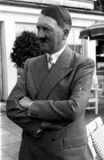1935 Inglaterran Election: Difference between revisions
(Created page with "{{Infobox election | election_name = 1935 Inglaterran Election | country = Inglaterran Confederacy | flag_image = Fi...") |
|||
| Line 63: | Line 63: | ||
The [[Great Business Collapse (Manala)|Great Business Collapse]] began at the end of 1928 and by May of 1929 had destroyed the economy, which was previously growing under [[Erik van Vries]]. This collapse led to the unemployment rate spiking to nearly 35% by election day, with millions out of work or jobless across the country. This led to a surge in extremist parties, such as the Communist Party, which quadrupled in size from [[1926 Inglaterran Election|1926]] to [[1929 Inglaterran Election|1929]] and doubled from 1929 to 1935. | The [[Great Business Collapse (Manala)|Great Business Collapse]] began at the end of 1928 and by May of 1929 had destroyed the economy, which was previously growing under [[Erik van Vries]]. This collapse led to the unemployment rate spiking to nearly 35% by election day, with millions out of work or jobless across the country. This led to a surge in extremist parties, such as the Communist Party, which quadrupled in size from [[1926 Inglaterran Election|1926]] to [[1929 Inglaterran Election|1929]] and doubled from 1929 to 1935. | ||
Faced with a mass exodus of voters, several unpopular Social Republican chancellors, and a surging opposition, the Social Republicans united with the Confederalists into a single coalition and invited every other party represented in the Assembly to join as well. While this tactic was successful for a short time, the Coalition won the 1935 election, it would end in violence when Karl Hoeven assembled a small paramilitary force and seized control of | Faced with a mass exodus of voters, several unpopular Social Republican chancellors, and a surging opposition, the Social Republicans united with the Confederalists into a single coalition and invited every other party represented in the Assembly to join as well. While this tactic was successful for a short time, the Coalition won the 1935 election, it would end in violence when Karl Hoeven assembled a small paramilitary force and seized control of Aachtigen. | ||
=Parties Contesting= | =Parties Contesting= | ||
=Voting and Enrollment= | =Voting and Enrollment= | ||
=Results= | =Results= | ||
Revision as of 07:53, 7 March 2023
| |||||||||||||||||||||||||||||||
All 350 seats in the General Assembly 175 seats needed for a majority | |||||||||||||||||||||||||||||||
|---|---|---|---|---|---|---|---|---|---|---|---|---|---|---|---|---|---|---|---|---|---|---|---|---|---|---|---|---|---|---|---|
| Registered | 69,420,257 ( | ||||||||||||||||||||||||||||||
| Turnout | 58,521,277 (84.3%) ( | ||||||||||||||||||||||||||||||
| |||||||||||||||||||||||||||||||
| |||||||||||||||||||||||||||||||
The 1935 Inglaterran Election was held on Sunday, 26 May 1935. It was the seventh election since Inglaterra's independence in 1899. All 350 seats in the Inglaterran General Assembly were up for election in a proportional election with a minimum threshold of 5% to enter the Assembly.
The election saw all major parties seek a grand coalition in opposition to the Communists and their leader, Karl Hoeven. All major parties would declare a cordon sanitaire against the Communist Party. While not all members complied, a vast majority did.
This would be the final free and fair election in Inglaterra for nearly 50 years, as on 19 June Karl Hoeven would march on Aachtigen and execute senior leadership of the Hiet Cabinet and seize control. It would not be until the 1984 election that Inglaterra would host free and fair democratic elections.
Background
The Great Business Collapse began at the end of 1928 and by May of 1929 had destroyed the economy, which was previously growing under Erik van Vries. This collapse led to the unemployment rate spiking to nearly 35% by election day, with millions out of work or jobless across the country. This led to a surge in extremist parties, such as the Communist Party, which quadrupled in size from 1926 to 1929 and doubled from 1929 to 1935.
Faced with a mass exodus of voters, several unpopular Social Republican chancellors, and a surging opposition, the Social Republicans united with the Confederalists into a single coalition and invited every other party represented in the Assembly to join as well. While this tactic was successful for a short time, the Coalition won the 1935 election, it would end in violence when Karl Hoeven assembled a small paramilitary force and seized control of Aachtigen.

